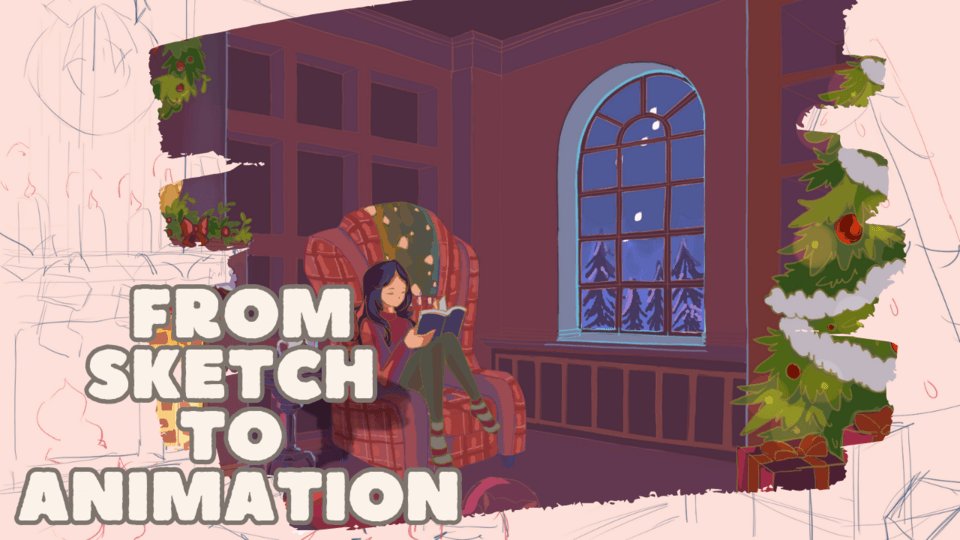Let's draw a Fantasy Background!
Welcome! In this tutorial I will explain my process of drawing a fantasy background, using Clip Studio Paint.
I am going to skip the explanation of the basics of digital art and perspective rulers in Clip Studio, so if you're not comfortable with it, I recommend you to check this official tutorial:
What makes a background Fantastic?
Fantasy is, simply, speculative fiction. This means, anything that disassociates from reality is fantasy.
Most fantasy uses magic or other supernatural elements as a main plot element, theme, or setting. For backgrounds, usually fantasy makes uses of giant buildings like castles, mountains, differently shaped trees, animals, or colors. You can also have some element that don't obey earths rules, like gravity.
Sketch and Composition
I would say that this is definitely the most important step of all, since its from here where you're going to create the whole illustration from. No matter how you do it, either in 3D, using perspective, drawing the specific angle by hand, or making it into a 360° space.
First, quickly sketch your idea, and then wonder the right angle for it. Using a low "camera", pointing up will make everything look bigger, specially if you use a small human as comparison. The opposite will, of course, give the opposite effect.
Its important to keep the composition in mind. For this, you can use already-made composition templates, like the ones below. Following those, are examples of fantasy settings.
For this tutorial, I will follow with the first example.
Lights and Shadows
I will be skipping the lineart because many artists, specially Background Artists, don't use lineart. Not only that, but this tutorial is focused on the Fantasy part of illustrations, and not the illustration itself.
In this step, I will talk about the Lights and Shadows, so, the grayscale view of the illustration.
Just because we are working without colors, and the objects and such are already present, doesn't mean that we can't still be incredibly creative. Even if your scene doesn't show anything fantastic, you can add it with the help of light and shadows. For example, you can have orbs, glowing elements, objects, or black holes. Here follows some examples:
Colors
Now, for the 3rd step of including fantastic concepts, we have, of course, colors!
This step requires little explanation, since, as long as we don't use "normal colors"(for example, brown for wood, blue for the day sky...), it will always be fantasy.
One easy way to test the color palette you want, is to use the Gradient Correction Layer in Clip Studio Paint. After a few color tests, you can proceed to use more colors and detail your artwork!
And we're done!
In this tutorial I definitely focused on the fantasy aspect itself, so that you can let your creativity fly , without being bound to my own ideas or style.
But with that, have fun trying out new ideas and good luck in your future Fantasy Backgrounds!











댓글